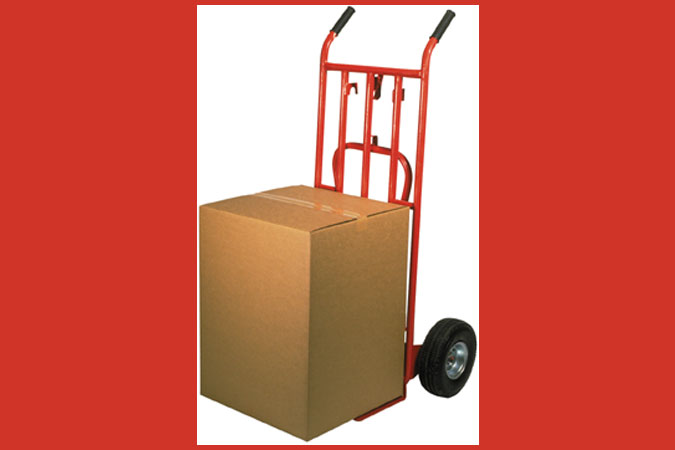
When I was a parish catechetical leader, I used to joke with my fellow DREs that we should create the real curriculum needed to earn a degree in pastoral ministry—one that would include courses in how to make coffee and serve refreshments; how to rearrange, set up, and take down tables and chairs and other furniture; how to clean bathrooms and unplug toilets; how to fix jammed printers; how to organize fundraisers; and so on. While we enter this ministry to proclaim God’s Word and to form people in faith, there are many duties that fall on our plates that seem remotely connected to that mission—and yet, we persevere.
Unfortunately, it seems that this reality of extra duties is growing as parish staffs are cut and responsibilities are piled on to those “left behind.” Here is an e-mail I received recently from Judy, a DRE friend of mine. (I’ve altered a few details, including her name, to protect anonymity.)
Been out of the loop a lot from diocesan events since July, 2016 with last year’s pastoral transition to religious order parish administration with three international priests not interested at all in running a parish. Our staff is now down to four of us handling everything but music, confessions (although I have done some pastoral counseling and heard plenty of confessions), and preaching.
Our maintenance man had emergency surgery the other day after a recent injury—”and then there were three”—so we’re handling his duties by committee and found a couple of volunteers to cut grass/handle leaves on our 4.5+ acres.
Today I fixed the parish commercial ice maker—not bad for a “mere” DRE. Getting ready to oversee complete new network infrastructure and overhaul of our phone and Internet services for the parish. Part of my office is being converted to handle an IT rack for networking equipment, so the continuous learning and adapting is definitely a challenge; unfortunately much of my energy is being spent on non-catechetical duties.
It is for this reason that I can’t emphasize enough the need for support from your peers in catechetical ministry—others who understand the challenges you face as a catechetical leader. In my new book, Called by Name: Preparing Yourself for the Vocation of Catechetical Leader (part of the Effective Catechetical Leader series by Loyola Press and NCCL), I share the following advice about the importance of participating in local gatherings of catechetical leaders:
Often, local gatherings of catechetical leaders are informal and materialize out of sheer necessity as pastoral ministers reach out and turn to their nearest neighbors for help. Such clusters not only provide members with friendship and support but also create models of collaboration between parishes that can be useful to other ministries with similarly limited resources. Once relationships are established and missions emerge, members of a cluster often schedule annual retreats together. Taking a collective pause can enrich the renewal experience and provide the needed inspiration to face the ongoing challenges of catechetical ministry. If you are new to the catechetical ministry, contact your neighboring catechetical leaders and find out whether a local cluster exists. Participating in one (or starting one!) can give you the kind of support you need not only to survive but also to thrive in your vocation.
We all do indeed need help and support in order to thrive in the vocation of catechetical leadership! What examples of “real life” as a catechetical leader—similar to Judy’s above—can you share? If you want more anonymity, send it to me via e-mail [joe (at) catechistsjourney (dot) com], and I’ll change your name and any other details that refer to your location, etc., before I post it as a comment here. Likewise, how do you find support as a catechetical leader? I look forward to hearing from you!





DRE – Does Really Everything. I heard this before but I orgot where and when, probably in one of those DRE meetings
How appropriate, Julia!
I’ve always said “Directly Responsible for Everything,” including the raccoons in the garbage can!!
Yikes!
You’ve walked a mile (or few) in my shoes! However, in our diocese we do find support with others in ministry on the diocesan level but especially on our deanery (county) level. We collaborate on a Dinner & Doctrine deanery adult faith formation project, some combine sacramental celebrations and parishes close to one another share and combine youth ministry activities.
Thanks for you comment, M, it is indeed to find that support in a network of colleagues.
Thanks for sharing. I am a new director of faith formation at a fairly large parish. The former DRE retired and left me several files in the computer and at her desk and ALL were empty. One month into my position I have had to recreate emergency forms, find catechists and clean out our resource room. The parish and school staff have been a great source of help and offering to help in all capacities. The first thing I was told about our Saturday classes was to be aware of the bathrooms. I wasn’t sure what they were talking about but after the first Saturday I found out that our plumber is first on the emergency contact phone numbers for a reason!
Hi Rosalie and thanks for sharing your experience. It’s good to go into a new position with eyes open and I have no doubt you will be up to the task!